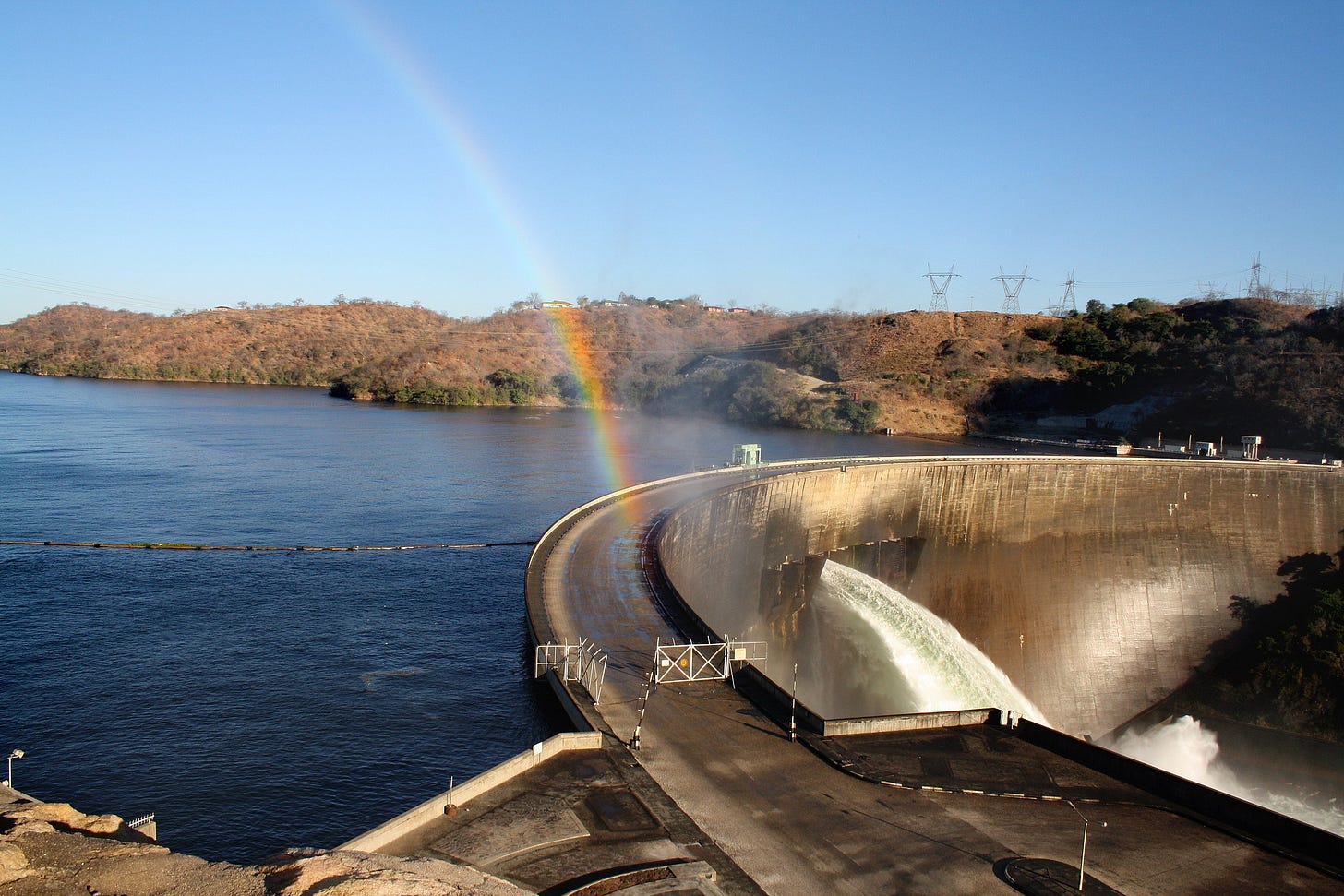🔅 JPMorgan: Coming to a Nation Near You
From Apartheid Bubble to Awakening & How Kariba Dam's Power Failure is Crippling a Nation
Image of the Day
Good Morning from Gabon

Spotlight Stories
JPMorgan Chase: Coming to an African Nation Near You

Look who's decided to dip their toes in the African market:
JPMorgan Chase, the largest U.S. lender, plans to enter Kenya and Ivory Coast this year and grow its footprint in Africa. CEO Jamie Dimon, who's probably tired of seeing Citigroup bragging about their presence in almost 180 countries, said, "We want to add a country or two in Africa, every couple of years or so."
International markets are a growth area for the bank, which has more than $4.2 trillion in assets and operates in over 100 countries.
But there are challenges ahead: JPMorgan faces the challenge of differentiating its offering in disparate markets dominated by local and regional lenders. Francis Mwangi, CEO of Nairobi-based brokerage Kestrel Capital cited Kenya, which has 40 commercial banks serving a population of 50 million. Indeed, large U.S. firms have traditionally struggled to compete on the continent. But Dimon is determined to make it work, and is holding meetings in Kenya, Nigeria, and South Africa to get "local knowledge and relationships."
In Kenya and Ivory Coast, the bank will focus on commercial and investment banking, treasury services, and possibly some lending. They have no immediate plans to offer asset and wealth management (AWM) services, which are already available in South Africa and Nigeria. But Dimon didn't rule it out.
The U.S. government, which wasn't keen on banks expanding into different geographies after the financial crisis, is now more supportive. Dimon said it's a positive move if U.S. financial institutions expand abroad, and the government should support such endeavors to compete overseas, citing the broad footprint of Chinese companies.
While the expansion may not have a material impact on JPMorgan's business in the near term, Dimon believes it will be beneficial for the company and future leaders in the long run.
From Apartheid Bubble to Awakening: One Filmmaker's Wild Ride
Imagine growing up thinking life was all sunshine and rainbows, only to realize you were living in a literal apartheid experiment. That's the mind-bending journey Milisuthando Bongela takes us on in her new documentary.
Born in apartheid-era South Africa, Bongela spent her childhood in the "Republic" of Transkei - a fake country set up by the government to keep Black folks "separate but equal" (spoiler alert: it wasn't).
It wasn't until the 90s, when her family moved to a mixed area, that Bongela had her "oh wow" moment about the racial situation in South Africa. Cue the existential crisis and guilt trip.
Bongela's film is like a fever dream of personal archives and historical footage, all set to her poetic voiceover. It's part therapy session, part history lesson, and 100% mind-blowing.
We can’t wait to watch it, but if you already have, hit reply and tell us what you think.
How Kariba Dam's Power Failure is Crippling a Nation
Imagine living in a place where you're lucky to have an hour or two of electricity a day. Where cities and towns are plunged into darkness for up to 72 hours at a time. Where your fridge is more likely to be filled with rotting meat than fresh food.
Welcome to Zambia, where a severe drought has decimated the country's power-generation capacity, leaving 43% of the population without reliable access to electricity.
The culprit behind this energy crisis is the mighty Kariba Dam, which normally supplies up to 84% of Zambia's electricity. But with water levels at an all-time low, only one of the dam's six turbines is operational, generating a paltry 7% of its usual capacity. The impact on daily life has been devastating.
Businesses are struggling to stay afloat, hospital power cuts are putting lives at risk, and then there's the sanitation crisis. With boreholes and toilets dependent on electricity, many families are resorting to filling buckets and bathtubs with water, hoping it will last until the power returns. Schools are advising children to bring their own water to prevent the outbreak of waterborne diseases like cholera.
The government's response? Encourage homes and businesses to switch to solar by scrapping import taxes on solar equipment. But for most Zambians, the cost is still prohibitive, and even those who can afford it are finding that their panels don't generate enough electricity when sunlight is scarce.
So, what's the solution?
Zambians are pointing the finger at successive governments for failing to plan ahead and diversify the country's energy sources. The current administration has pledged to invest in more solar plants and even a second coal-fired power plant.
For now, Zambians are left to navigate the darkness, hoping that the lights will stay on long enough to charge their phones, cook their meals, and flush their toilets. It's a stark reminder of how much we take electricity for granted - and how quickly life can grind to a halt when it's taken away.
Food for Thought
“An old pot keeps the water fresh.”
— Eritrean Proverb



